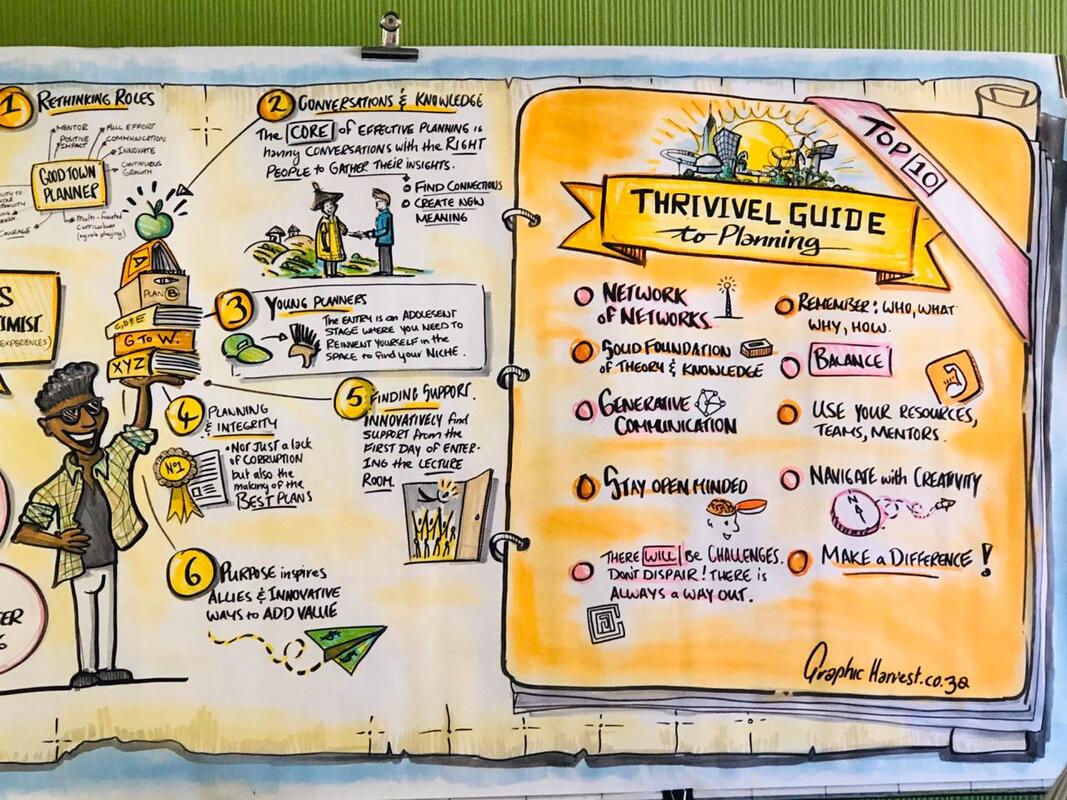 On 28 November 2019, the South African Planning Education Research Project (SAPER), in partnership with SACPLAN, hosted an exciting yet unconventional planning event, an ‘unconference’, in Johannesburg. This event was influenced by three years of research between the University of the Free State (RSA) and University of Birmingham (UK), which focused on South African planning education and the profession at large. The theme that inspired the days' proceedings was termed ‘What I wish I knew'. The aim for the day was to bring together practising planners with the SA SAPER team in a more intimate/relaxed setting and identify and consolidate practice lessons and individual stories. Central to these interactions was the idea of being able to learn from each other's experiences, challenges and perspectives and to find ways to improve the South African planning fraternity. The morning started with an icebreaker, 'Rock Around the Clock,' as a means of setting the tone and enabling multiple and quick introductions between strangers. From there we moved into a session where we used a gallery styled setup to present various quotes from the SAPER research interviews, as well as work from Dr Laura Nkula-Wenz from the Cities of Integrity project at the African Centre for Cities. The intent of the gallery was to provide participants with a chance to walk around and engage with the research on their terms. Each participant was encouraged to place a small note on quotes with which they agreed, or on those which made them uncomfortable. For example, one of the quotes was, “I don’t think all planners out of all professions, out of all the programs are equipped to deal with informality. However, I do think that there is a realisation, it must be across the board, that informality is something we have to plan for and with.” Some of the responses included comments such as: “Informality is the single biggest challenge we face, yet too little teaching and practice relate to it.” “Informality, especially the second economy, cannot be wished away, in post-apartheid planning it needs to be incorporated into design[s] where appropriate.” This approach allowed us to see what participants felt about some of the key issues we had identified in the research, and allowed participants to see what other participants felt about topics; in a sense creating an indirect, anonymous, dialogue between participants. From there the conference continued onto small group sessions of around 7-10 people each, which started with a prepared input from the group facilitator and then allowed for group discussions. Some of the key themes that came from this session included: · Rethinking roles – what is a ‘good’ town planner? Qualities discussed included communication, mentorship, innovation, constant growth, etc. · Conversations and knowledge: It was argued that one of the core qualities of effective planning is having conversations with the right people to gather their insights. · Young planners: Being a young planner was compared to a professional ‘adolescence’ where you need to reinvent yourself to find your niche. · Planning and integrity: This was argued not just to be the absence of corruption, but also the making of the best plans within the constraints of the resources available. · Finding support: Core to effective planning is building networks of support. · Motivation: purpose inspires allies and provides ways to add value. After lunch, we continued with the collaborative effort of designing a planning guide which was facilitated by Dr Elsona Van Huyssteen. We called it the '‘thrivivel guide to planning' with the hope that these lessons will enable people to not just merely survive but thrive within the profession. This was done by creating a physical abstract model of the guide, using everything from paper cups to craft sticks. Some of the key messages that came from this session were, again, a focus on networks, on the necessity of having a solid foundation of theory and practice, and the importance of keeping an open mind. One really pertinent quote was, “there will always be challenges, don’t despair! There is always a way out.” The day concluded with the final touches from the graphic harvester Grant Johnson, who explained the graphic he had produced of the outputs of the event, with which we intend to create a guide for planners on how to thrive in industry (currently being drafted). A personal reflection for me on this event, as a planning educator, was the importance placed on communication and networks. In planning education we tend to focus on knowledge and technical skills; for example, teaching students GIS, data analysis, and topics such as environmental planning, planning law and the like. To some extent, we still teach planning students to be technical experts, professionals who can make plans and write reports. While this is obviously important, the main feedback we seemed to get was that planning was less an exercise in being an expert and more an exercise in being a ‘middle man’ between a number of stakeholders. As such, skills such as relationship-building, leveraging support, communication, mediation and the like are critical. The question then is how do we start to teach young planners these skills, and to what extent are these best learnt in practice, and how should universities be responding to this challenge? What is certain is that the response will need to be a move away from conventional teaching methodologies, and need to adapt skills from disciplines such as social work, psychology and business into planning education. This has the potential to become an exciting area of innovation in planning education. In this vein, I would like to conclude with a quote from one of our earlier interviews with planning practitioners that provides an excellent summary of this idea: “Walking that line between planning fundamentally being about whom, because that who you plan for, that’s who implements your plans, who approves your plans, who funds your plans, who commissions your plans. That’s all people. And the more technical aspect of the discipline understanding the complex network of by-laws. Understanding hard physical limits like flood mains and soil conditions and dolomite. … Because if you a technical expert but you have no social skills, you not going to get anything on the ground. …If you socially very fluent but can’t put together a good technical plan, you gonna get things on the ground but they gonna be lousy. …: So, constantly working as a person between the troubled past and a less troubled future, between a technically determined profession and a socially fluent phenomenon.” Stuart Denoon-Stevens [Special thanks to Geoff Bickford for being MC; Rehana Moosajee (The Barefoot Facilitator) for assisting with program development; the organizing and facilitation team, namely, Rouve Bingle, Thapelo Chacha, Mischka Dunn, Jennilee Kohima, Lucia Leboto, Tokelo Nche, Emmie Smit, Thandeka Mlaza-Lloyd, Thomas Stewart, Refilwe Khabe and Elsona van Huyssteen, for your hard work; Grant Johnson for the graphic harvesting; the NRF and the ESRC / Newton Fund for funding this event (funding codes 105399 and ES/P00198X/1 respectively), SACPLAN for partnering with us, Dr Laura Nkula-Wenz from the Cities of Integrity project at the African Centre for Cities for the quotes facilitation and your general inputs; the wider SAPER team for their ongoing support, in particular, my co-PI, Dr Lauren Andres; our presenters for preparing inputs for the planning optimist session; and all the attendees for making this event the success it was.] 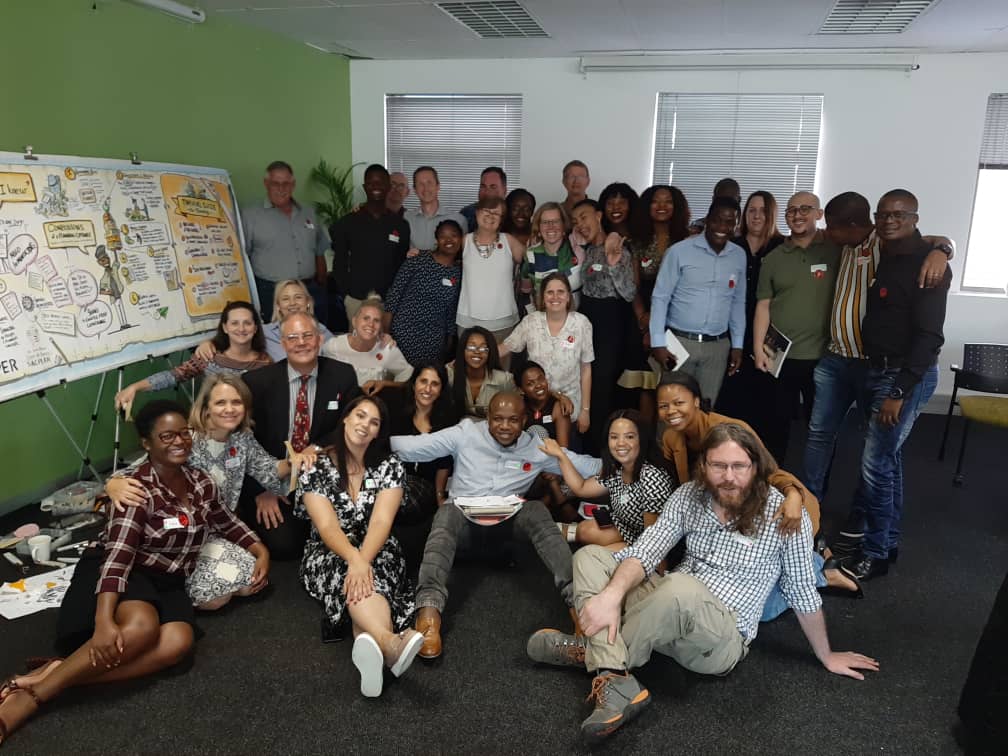
0 Comments
It's been now almost 30 months that the South African Planning Education Research (SAPER) project started, back in early 2017 with an initial focus on the curriculum and teaching methods used in urban and spatial planning education. Since then, the project’s scope has widened, specifically bringing in a focus on understanding the needs and challenges of planning practitioners in South Africa, and what implications this has for planning education, before and after graduation. We will be running the project for one more year (ending in July 2020).
To remind those who haven't read our previous posts, from 2017 to late 2018, the emphasis of this project was on data collection. In 2017, we undertook a survey with 219 planning practitioners across the country, with questions ranging from concerns relating to work satisfaction, to rank the usefulness of planning competencies learned in planning accredited courses. Supplementing this survey, we also analyzed the race and gender profile of registered professional planners in order to chart the changing demographics of planning in South Africa. In 2018, we undertook 89 interviews with planners across the country, in both metropolitan and non-metropolitan areas. These interviews focused on taking the survey findings further, with the intent being to create a rich picture of the diversity of planning practice. These interviews reflected on issues ranging from the relevance of planning education, to the day to day challenges of planning practice in South Africa. Some of the key themes this project has tackled include the role of power relations in planning, success and failure of planning reform post-apartheid, development control, challenges for young graduates and issues around professional continuous developments, alternatives and temporary forms of planning and severe resource discrepancies between major urban centres and the rest of the country. We highlight below some of the key questions and points we have addressed in those different themes. In our investigation of power relations in planning in South Africa, we use the notion of Michel de Certeau’s notion of lieu propre for making sense of how practicing planners respond to power dynamics within municipalities. Through this work, we demonstrate that the strategies of the powerful are themselves subject to negotiation. Planners are not simply passive recipients of legislation and policy, but rather, state strategies are a produced through co-construction between powerful actors, whose interests often are at odds with each other. In looking at the successes and failures of planning in South Africa, planners’ optimism around the reform of planning legislation in South Africa is noted. However, many frustrations have also been identified, ranging from concerns that plans are being written but not implemented, political interference in planning matters, job reservation, and concerns over capacity in municipalities to undertake planning work. This research is critical of this stance, arguing that many of these concerns could also be interpreted as indicators of a planning system whose design requires a level of competence and capacity unlikely ever to exist. Given this, suggestions are being made that planning reform needs to focus on creating a leaner planning system. The bulk of this reform needs to focus on the land use management system, given that this is both one of the most powerful tools that planners have, as well as the least reformed part of the South African planning system. In terms of development control, this project also identifies that planners struggle to conceive of development control tools that go beyond zoning, and more often than not, Euclidean zoning. It is argued that conventional zoning, as practiced in South Africa, is purely suited to respond to the complexity that defines South African settlements, especially concerning informality. In response to this, we draw upon Stefano Moroni and his colleague’s work on simple rules. This argument is premised on the notion that planning regulations should allow for a diversity of responses, enabling households to easily adapt to changing social, cultural and economic systems. Looking at alternative forms of planning and temporary uses of urban spaces, we note the difficulty for planners to embrace with adaptability and join up two complex forms of making and shaping spaces, the formal and planned one and the more informal, temporary, diverse and fluctuant one responding to everyday needs and coping. We highlight the difficulty in tackling such temporal dynamics in planning education and then in practice, where planners often loose scope and understanding of what is happening in the field and specifically in the more informal communities. Finally, reflecting on gaps and need in training, we question the ways in which can be addressed the difficulties for young planners to find a job coupled with resource scarcity faced by the smallest and more rural municipalities. This allows us to raise a range of questions related to places where planning and specific tasks of planning are delivered by non-planners or by planners who don’t have full knowledge, capacities nor resources to tackle challenges they are tasked to address. We argue here that indeed this issue is not specific to South Africa which despite severe planners shortage is still much better placed than most African countries. Reflecting on the implications of these arguments, we suggest that there should be greater emphasis in planning education on how to negotiate and work within the structures of power, everyday temporalities and find ways to gain additional training once in the field. These findings also emphasise the need for planning educators to teach planning students to be creative, so as to enable planners to be able to think beyond tried and tested methods and approaches to planning, and identify and embrace alternative practices to planning and regulation that are better suited to the South African context. The heart of this is recognizing that planning is a profession with a balance of hard and soft skills, and that competence in both is required in order to be successful as a planner. To quote one of our respondents, “Walking that line between planning fundamentally being about whom, because that who you plan for, that’s who implements your plans, who approves your plans, who funds your plans, who commissions your plans. That’s all people. And the more technical aspect of the discipline understanding the complex network of by-laws. Understanding hard physical limits like flood mains and soil conditions and dolomite. … Because if you a technical expert but you have no social skills. You not going to get anything on the ground. …If you socially very fluent but can’t put together a good technical plan, you gonna get things on the ground but they gonna be lousy. …: So, constantly working as a person between the troubled past and a less troubled future, between a technically determined profession and a socially fluent phenomenon.” SAPER has joined the ESRC network Urban Transformations coordinated from the University of Oxford and showcasing research on cities. This is a fantastic opportunity to showcase the range of exciting urban research occurring in very diverse geographical locations.
UT is co-ordinated by Professor Michael Keith (who is Director of the Centre on Migration, Policy and Society) is run by a small team of staff seconded to run the website, events and knowledge exchange activities. This also includes liaison with the Future of Cities Catapult via the joint appointment of Paul Cowie, ESRC/Future Cities Catapult Research Fellow. The UT portfolio represents over 80 research projects that engage with the challenges and opportunities of an increasingly urban world. For more information, please visit: https://www.urbantransformations.ox.ac.uk 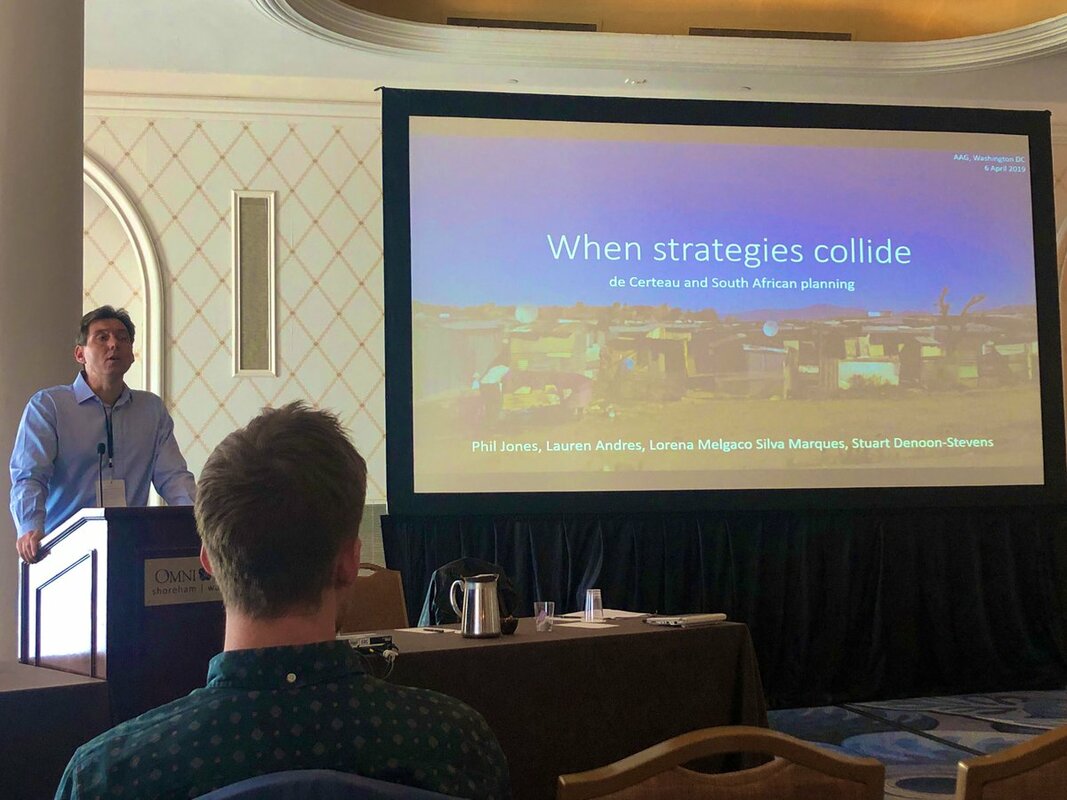 I’ve just got back from this year’s Association of American Geographers Annual Conference which was held in Washington DC. These large international conferences can be very exciting if somewhat overwhelming, with AAG featuring over 5000 papers and around 7000 attendees spread across two giant hotels in the Woodley Park neighbourhood of Washington. As part of the SAPER project I organised a double session themed ‘Planning in theory, theory in planning’, with speakers from the US, France, China, Finland and South Africa. The session was co-organised with Charlie Corwin from University of Illinois-Chicago and Emmanuel Frimpong Boamah from SUNY at Buffalo. I presented some of the work that has come from the SAPER project where we have used our research data on South African planning education to critique the ideas of French theorist Michel de Certeau. Drawing on a paper that myself, Lauren, Stu and Lorena have just submitted to Urban Studies, the presentation argued that there are some fundamental flaws in the way that de Certeau – a famous theorist of resistance – conceptualised power and particularly how powerful actors have to negotiate between different, often contradictory, agendas. There were a range of really exciting papers in the session. There’s not space here to discuss them all, but I’ll pick out a couple of highlights. Allie Appelbaum discussed how dealing with potholes was being used by white South Africans as a proxy for discussing political failure and urban mismanagement. Sarah Gelbard drew on personal experiences in the punk scene to explore creativity and gentrification in north American cities. Claire Tollis told us about a fascinating project she ran in Northern France exploring the bottom-up generation of strategies for urban transportation management. Meanwhile Neville Mars, an architectural practitioner, gave some fascinating insights into the lack of joined up thinking in Chinese urban sustainability planning. Conference papers are often a precursor to journal articles and given the quality of work on show in the session, I’m hoping that we’ll see some of these ideas out in print very soon. Full details of the papers included in the session:
Phil Jones On November 27th, the SAPER project held its second steering committee meeting. External attendees included: Dr Riette Oosthuizen, partner in planning at HTA Design LLP, Prof. Cliff Hague, emeritus professor of planning and spatial development at Heriot-Watt University and freelance researcher and author, Paul Watson, independent planning consultant and former strategic director for regeneration and development at Solihull Metropolitan Borough Council, Clive Harridge, secretary-general of the Commonwealth Association of Planners (CAP), Rebecca Farr, principal development planning officer at Birmingham City Council, Jacob Bonehill, strategic delivery advisor at West Midlands Combined Authorities, Andrew Close, head of careers, education and professional development at the RTPI and Dr Patricia Noxolo, senior lecturer in cultural geography in GEES.
It was a very productive day, which started with Lauren Andres (PI) and Lorena Melgaço (RF) presenting the results and analysis of the 2017 survey and the interviews conducted in the first semester of 2018 in South Africa. During the morning session, the steering group highlighted the positive outcomes of the survey and interviews and discussed possible crossovers with British planning education for example in regards to the level of satisfaction of professionals with their education and the profession. Wider debates also occurred in line with the competencies of the planners versus the challenges to address, the wider questions behind decolonising knowledge throughout North/South, South/South learning and the issue of race and racialisation. In the afternoon, the internationalisation of UK planning education was discussed, with Lorena presenting some of the preliminary data collected through interviews and a short survey with British planners. Phil Jones (Co-I) also presented the teaching app pilot conducted between the University of Birmingham and University of the Free State students and the steering group commented on its potential for duplication in core MSc degrees. The group spent the final part of the session discussing impact and outreach activities carried out in South Africa and internationally. This was an opportunity to present the ‘Good Practice Platform’ developed by SAPER (Phil Jones) for the Commonwealth Association of Planners (https://www.commonwealth-planners.org/good-practice-platform) as well as the prototype discussion board currently designed with SACPLAN (South African Planning Association) to support planners on the ground. Those activities are complementing the range of other impact events and outputs (incl. range of briefing notes - http://www.saperproject.com/resources.html) the team has been attending and producing in the last six months linking up with the relevant institutions in South Africa such as SAPI (South African Planning Institute), DRDLR (Department for rural development and land reform), COGTA (Cooperative Governance and Traditional Affairs), SALGA (South African Local Government Association), DPSA (Department of Public Service and Administration), and also worldwide such as CAP, World Economic Forum and UN Habitat. Suggestions towards supplementary engagement pathways in the UK were sketched by the steering group members. The beginning of the academic year has been very busy for the SAPER team.
In September, Lorena Melgaço presented the preliminary analysis of SAPER fieldwork at the UK and Ireland Planning Research Conference in Sheffield. The paper was entitled “Responsibility and resistance: planning for (and with) entrenched inequality”, co-authored with Lauren Andres, Phil Jones, and Stuart Denoon Stevens; it grappled with the pervasive racialisation of the planning profession in South Africa. Drawing on de Certeau’s work on tactics and strategies, the paper highlighted the role of High Education, the maintenance of a business-as-usual approach to the field and the current political context as important obstacles for the transformation of the profession. The same month, Verna Nel, Rouvé Bingle and Mischka Jacobus were in Lisbon at the International Conference ‘Fifty years of local governance 1980 – 2030’, organised at the Institute of Geography and Spatial Planning. Co-authored with Ruth Massey and Stuart Denoon-Stevens, Verna presented a paper on “Planning practice at local government level in south africa: challenges, implications and new approaches”. Rouvé, Mischka and Verna also delivered another presentation on “Taking the moral high ground” – exploring the impact of local government on ethical planning practices. Part of the SAPER team attended the Planning Africa Conference, in October in Cape Town. In addition to the range of activities described in two separate posts, the three-days conference was a fantastic opportunity to connect with a range of planning practitioners from across the country and discuss the project with a range of key planning organisations, including SAPI and its (past) president Nthato Minyuku. Finally, Elsona Van Huyssteen attended the 5th iCities Innovative Planning Education and Research Forum (October 26-28) at the National Cheng Kung University, Tainan, Taiwan. Lauren Andres and Stuart Denoon Stevens, were invited today to attend the Commonwealth Association of Planners business meeting, in Cape Town. This was an excellent opportunities to discuss core planning issues and challenges across the Commonwealth, the importance of the planning profession at a local, national and international level, specifically with regard to Sustainable Development Goals. A key point that was subsequently discussed is the need for capacity building, shared knowledge across the members and specifically towards countries with very limited planning capacity.
Lauren Andres presented at one of the plenary sessions of the 2018 Planning Africa Conference (15-17 October 2018) some results of SAPER and how they can inform the achievement of the New Urban Agenda (SDGs). The panel was comprised of Dy Currie, Peter Geraghty, Viral Desai and Kristin Agnello. Amongst the key areas Lauren Andres, Stuart Denoon Stevens and Martin Lewis wanted to highlight were first the challenges facing the implementation of SDGs in South Africa due to a) the complexity of policies (by different government departments and levels); b) the significant resource and personnel constraints, which are particularly acute in small to medium municipalities (esp. rural) and c) the fact that SDGs still appear as secondary challenges in contrast to other ‘perceived’ priorities (for example housing and poverty alienation). As to move forward we suggested looking at a more holistic approach to urban planning and development breaking a too siloed approach still in place and also fostering planners’ capacity building (targeting skills needed once in practice and training after graduation).
The SAPER project team held a retreat in Milton Keynes 18-22 June led by Lauren Andres and Stuart Denoon-Stevens in order to develop the impact and publication strategies for the project. This is a very exciting time in the life of the SAPER project as the data collection phase has just finished and the team has been expanded to bring on board Martin Lewis (SACPLAN), Elsona Van Huyssteen (Council for Scientific and Industrial Research) and Emmie Smit (UFS) to maximise the potential for impact. The sessions included a masterclass on impact run by Sophie Hadfield-Hill from the University of Birmingham and a briefing on writing REF papers by Phil Jones. After a very intensive few days the team produced a detailed list of activities and tasks for the final 12 months of the project. Opportunities were identified for feeding into a new mentoring and CPD strategy for South African planners. Activities at Parliament were planned to help shape South Africa’s forthcoming Planning Professionals Act. The team also sketched out a series of briefing notes and short films around the role of planners, the challenges of planning in a developing world, the future of the African city and the tensions between urban and rural planning. The SAPER project has created a very large dataset of 212 questionnaire responses and 110 interviews with planning professionals and educators, producing the first comprehensive overview of the state of the profession in South Africa. Following a detailed discussion of the materials that have been gathered, up to twenty potential papers were identified and a writing strategy drawn up in line with REF priorities. It was also nice for the team to meet face-to-face as a group – one of the problems of working across two different continents – and gain a better understanding of our motivations and constraints. Although it was an intensive few days, the project team ended the week feeling very positive about where the project was going over the next twelve months. The SAPER team. L-R, Martin Lewis, Emmie Smit, Phil Jones, Verna Nel, Stuart Denoon-Stevens, Mishka Jacobus, Rouvé Bingle, Lauren Andres, Lorena Melgaco Silva Marques, David Adams
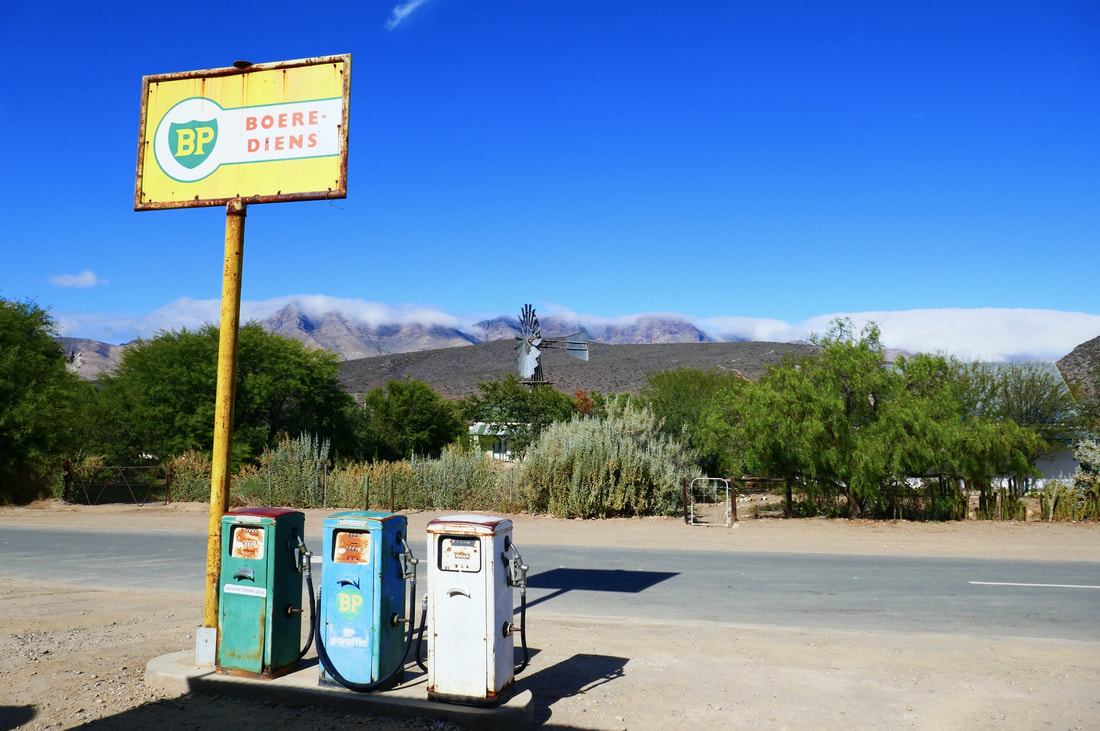 The months of February to May have been a whirlwind of SAPER activity. The second phase of our data collection has come to an end and the fieldwork has taken us as far as Cape Town to Bloemfontein, Pretoria, Johannesburg, George and Port Elizabeth. All of this in order for us to conduct in-depth, face-to face interviews with the South African planning community. The group was diverse and included the young and old (and wiser), men and women, multi-racial and multi-sectoral to create a representative sample. Conversation ranged from the state of the South African planning profession, graduate readiness for the job market, diversity, technology and skills requirements. It was fascinating to sit down with persons from academia, government and the private sector and hear their perspectives on issues that affect both their communities and them personally. Interview after interview we realised how complex and fluid the work of planners is and that a long list of both hard and soft skills is required in order to mould a successful graduate. It was also interesting to discuss how expectations are met in a planner’s daily work in face of the great challenges (and achievements) of the profession. Altogether it was an extremely successful and engaging experience and SAPER would like to thank each and every participant for their time and insights. In total we have conducted 96 interviews (89 with South African planners) and all recordings are currently being transcribed and coded, as we speak. Some very interesting themes are already evident and we look forward to the final outputs. Next up: The South African and UK teams are getting ready for their writing retreat in the UK. Rouve Bingle and Lorena Melgaço |
AuthorThe SAPER blog is written by different members of the SAPER project team. Archives
March 2020
Categories |
Proudly powered by Weebly
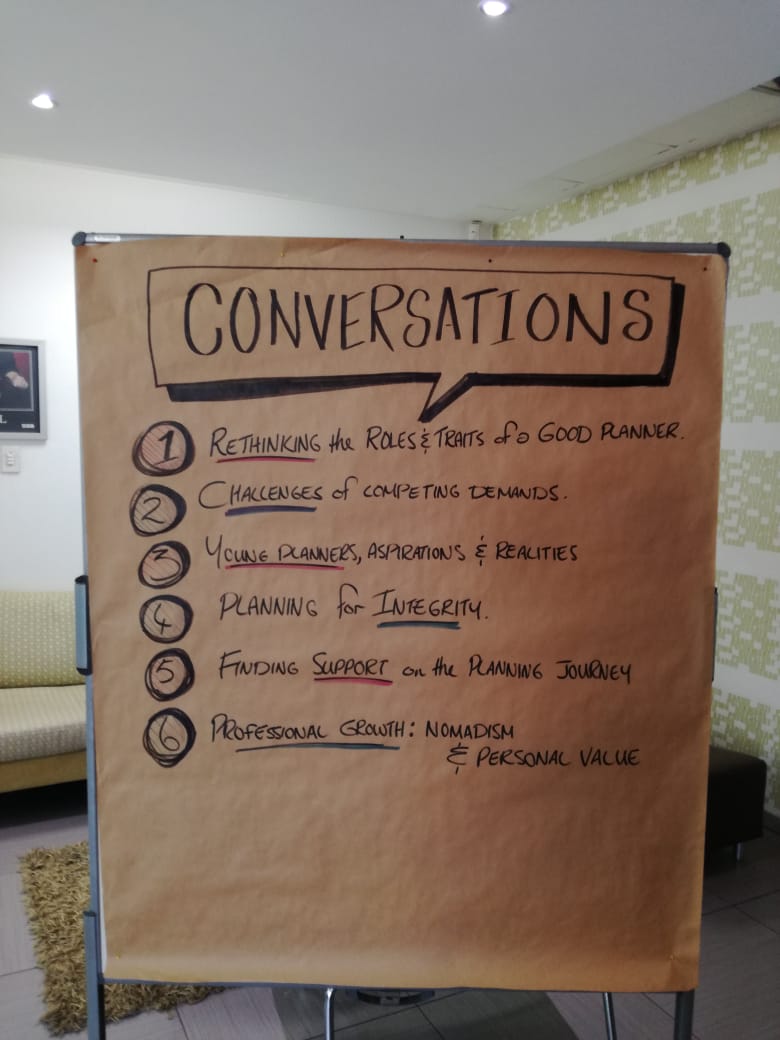
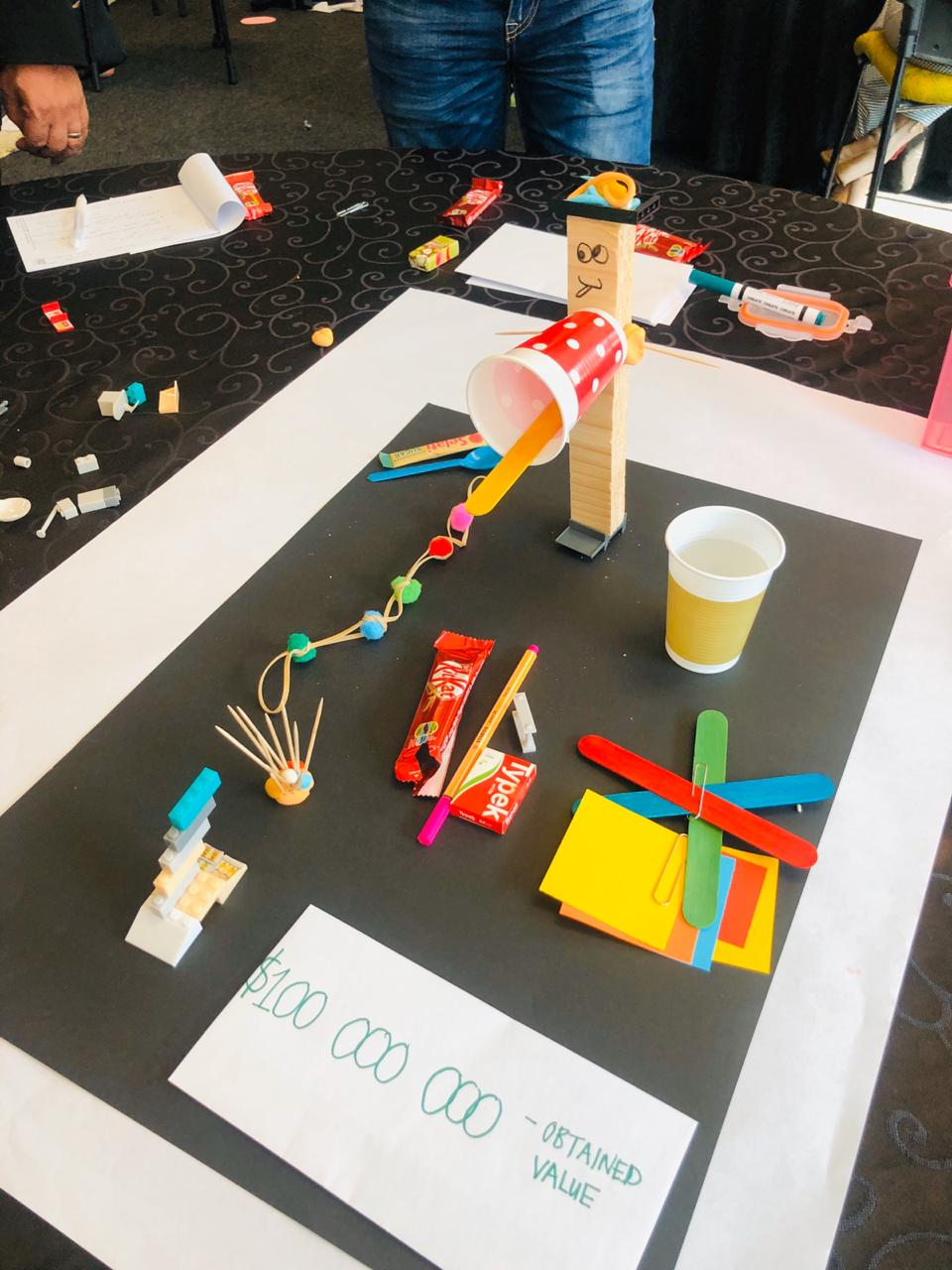
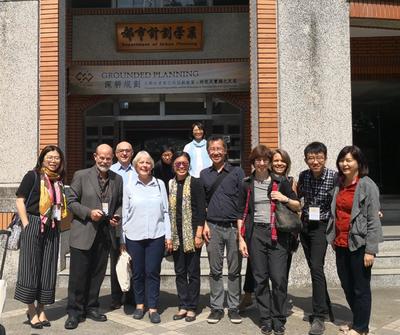
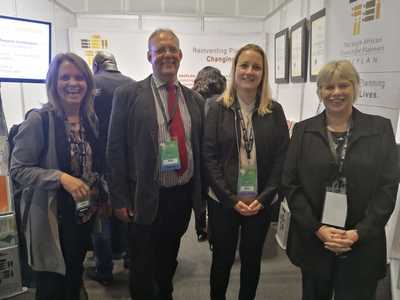
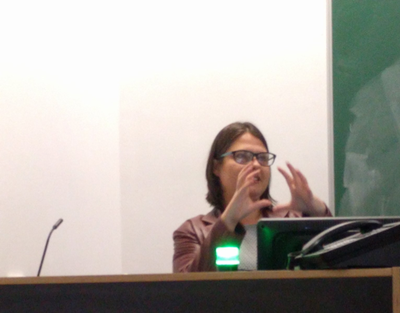
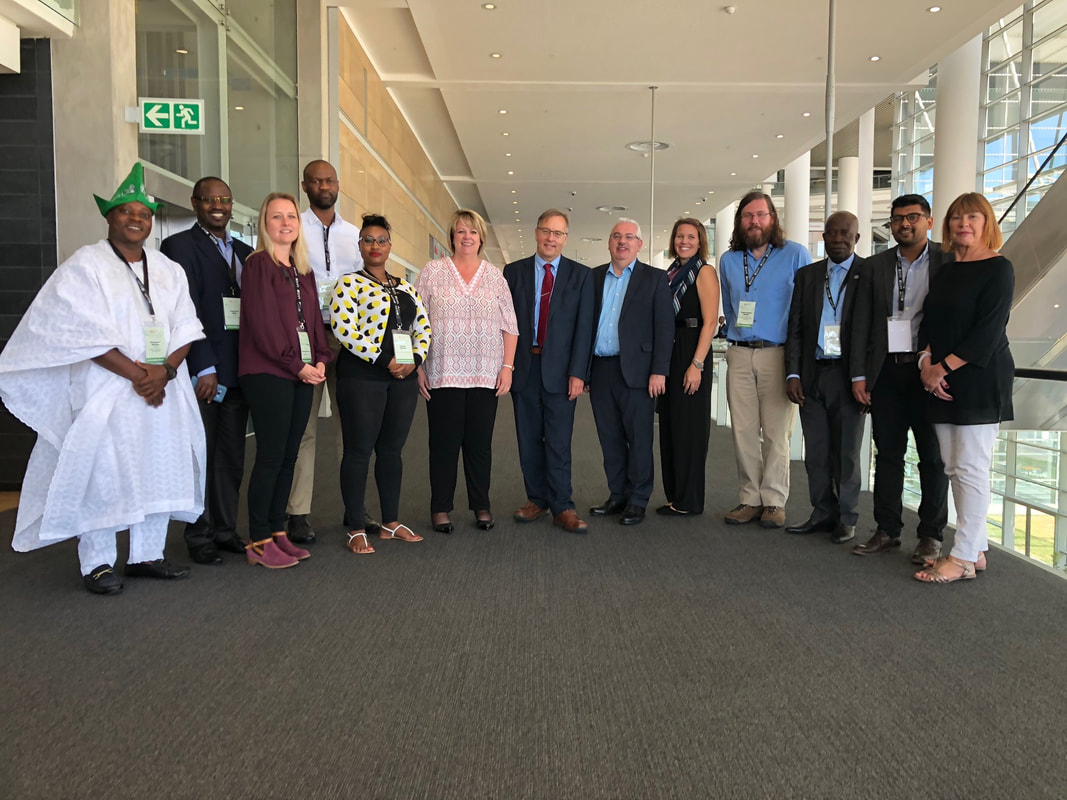
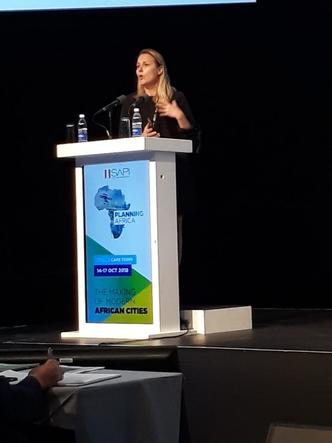
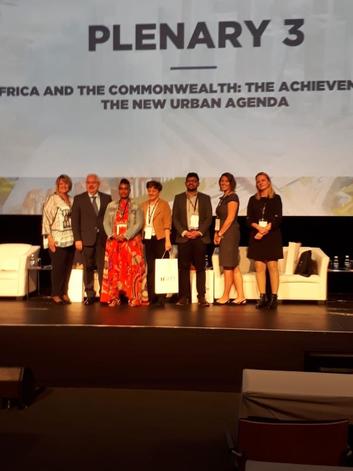
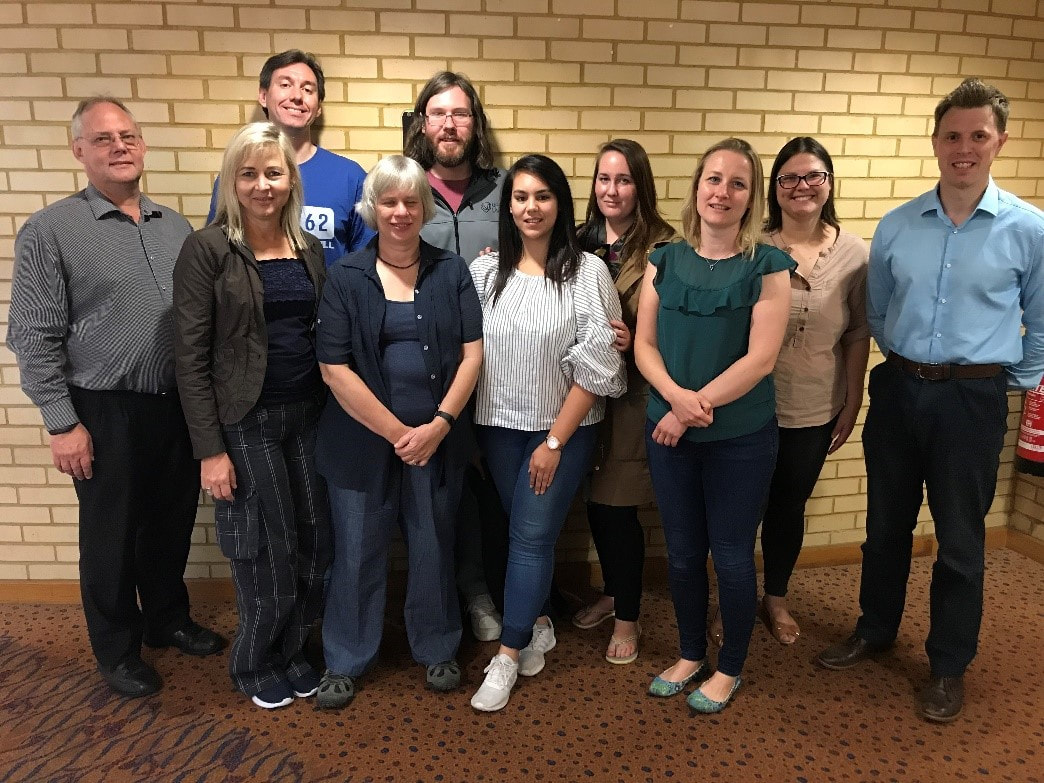
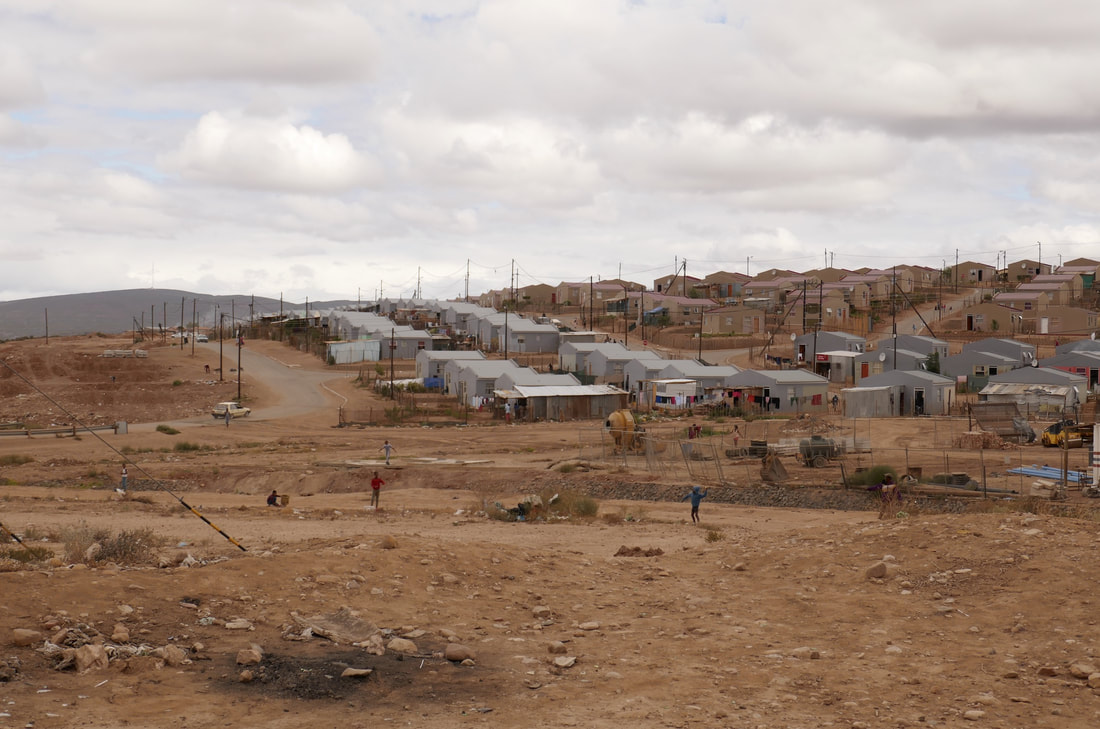
 RSS Feed
RSS Feed